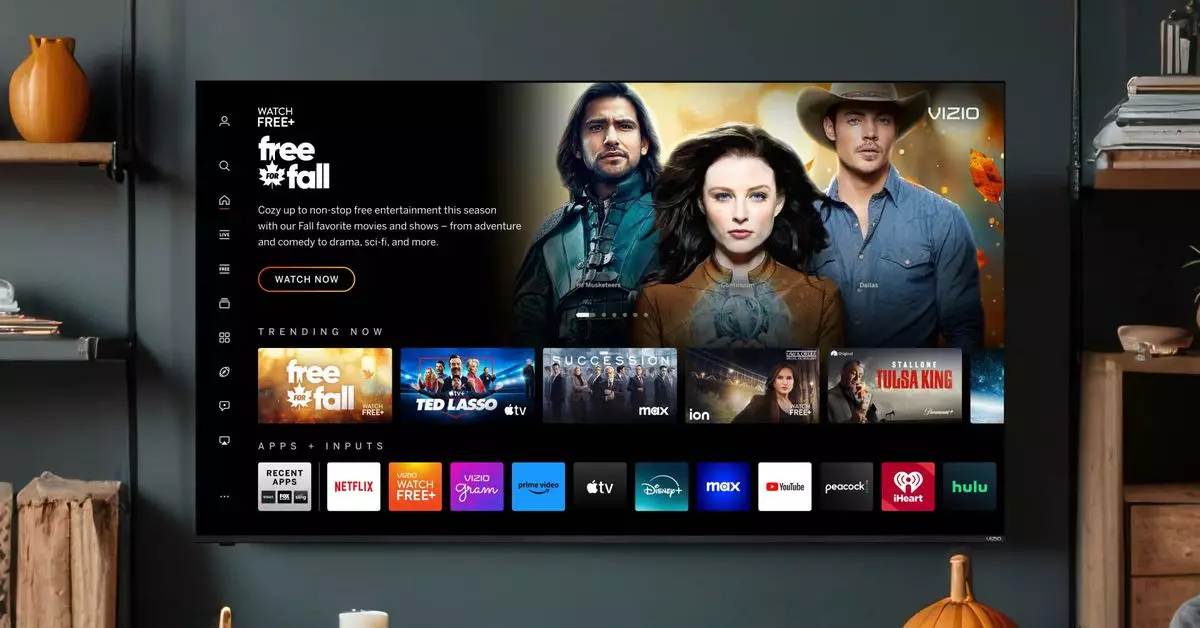In a significant development for the retail and tech industries, Walmart has officially acquired Vizio in a deal valued at $2.3 billion. This acquisition, which closed recently following announcements made earlier in the year, marks an important step for Walmart as it aims to enhance its presence in the advertising sector. The purchase of Vizio, a well-known TV manufacturer, holds the potential for Walmart to tap into consumer data and bolster its advertising capabilities.
At the heart of Walmart’s acquisition is Vizio’s advertising and data division, known as Platform Plus. According to statements from Walmart, this division plays a vital role within Vizio’s overall profitability, which indicates that the wealth of data generated by Vizio’s viewer base could significantly enrich Walmart’s advertising strategies. The retail giant is already positioning itself to utilize insights from its shopper data to enhance advertisement targeting on popular streaming platforms such as Disney Plus and Hulu.
The synergy between these two entities presents a myriad of opportunities, including the potential for Walmart to increase advertisement sales not only in stores but also directly on Vizio’s smart TVs. This growth avenue signifies Walmart’s ambition to merge retail and technology, aiming to deliver more personalized advertisement experiences to consumers.
Privacy Concerns Emerge
However, this deal has triggered alarms, particularly among privacy advocates. Vizio has a contentious past regarding data collection practices, notably facing legal issues for tracking user behavior without consent. In 2017, the company settled with the Federal Trade Commission, agreeing to pay $2.2 million over allegations stemming from surveillance without proper user consent. Given these concerns, the acquisition by a retail behemoth like Walmart raises questions about consumer privacy and data security.
As Walmart begins to integrate Vizio’s data capabilities into its broader advertising initiatives, it will need to tread carefully to mitigate any backlash from consumers regarding privacy violations. This requires transparency and robust measures to ensure that user data is managed ethically and responsibly, reassuring customers that their personal information remains protected.
The acquisition may also alter the competitive landscape within the budget TV market. Vizio’s role as a cost-effective alternative is vital in an arena where advertising revenues are crucial. With Walmart’s resources and advertising expertise, Vizio could enhance its competitive stance against burgeoning competitors like Roku, which reported impressive advertising revenues recently. While Vizio reported lower average revenue per user compared to Roku, Walmart’s acquisition could empower it to leverage a more effective advertising strategy, potentially narrowing this gap.
Future Outlook
Despite the acquisition, both Walmart and Vizio will maintain independent operations for the foreseeable future. Vizio’s CEO, William Wang, will continue to lead the company, indicating that Walmart aims to preserve Vizio’s successful business model while integrating its advertising capabilities. This unique approach could foster innovation within Vizio, empowering it to adapt to changing market dynamics while enhancing Walmart’s advertising footprint.
Walmart’s acquisition of Vizio signals a strategic move that intertwines retail and technology, although not without notable privacy concerns and competitive dynamics. As these developments unfold, the implications for both consumer privacy and the advertising industry remain to be fully realized.

